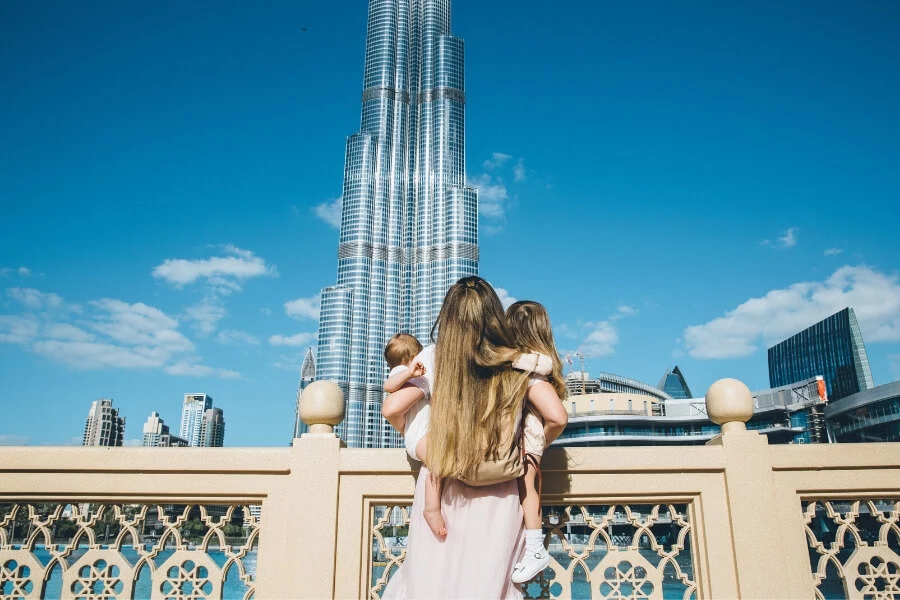Co-living spaces Exploring Relationship Regulations
Co-living spaces considering living together in this vibrant city.
You might wonder about the rules and regulations surrounding cohabitation.
Navigate through the legal landscape, visa options, and offer insights to help you make informed decisions.
Dubai, a part of the United Arab Emirates (UAE), holds a unique blend of tradition and modernity.
When it comes to cohabitation, the UAE follows Sharia law, which can influence regulations.
While Dubai is relatively open-minded compared to some of its neighbors.
It’s important to respect the local culture and laws.
Cohabitation Rules and Visa Options
Dubai doesn’t have specific laws against unmarried couples living together.

But societal norms and traditions can play a significant role.
To stay together in Dubai, couples often need to be married or have a legally recognized relationship.
Tourist visas typically don’t permit long-term stays.
So couples might explore other options like employment visas, investor visas, or family sponsorship visas.
If one partner is a UAE resident.
Here are some common visa options for couples:
Employment Visa
If both partners secure jobs in Dubai.
They can obtain employment visas that allow them to live and work in the city.
Tourist Visas
While tourist visas are typically temporary.
They can provide a short-term solution for couples exploring their options.
However, these visas usually have limitations on the duration of stay.
Investor Visas
If one partner is investing in a business in Dubai.
They might be eligible for an investor visa.
Which can extend to their family members.
Marriage Laws and Family Sponsorship
Marriage can simplify the process of living together in Dubai.
Non-Muslim couples can get married at their embassies or consulates.
For Muslim couples, the process might involve additional steps.
Family sponsorship allows a resident partner to sponsor their spouse.
Ensuring legal residence and simplifying the cohabitation process.
Unmarried Cohabitation
While cohabitation without marriage might not be openly discussed.
Many expatriate couples choose this path.
It’s essential to be aware of potential challenges.
Finding accommodation that doesn’t raise eyebrows can be tricky.
Being discreet and respectful of local customs can go a long way.
In fostering a harmonious living situation.
Sharia Law and Its Influence
To understand the nuances of cohabitation in Dubai.
It’s essential to grasp the influence of Sharia law.
Sharia law is a comprehensive legal framework derived from Islamic teachings.
Encompassing various aspects of life, including family and relationships.
While Dubai has embraced modernity.
Sharia law continues to play a significant role in shaping its legal landscape.
For unmarried couples, this means that while there might not be explicit laws against cohabitation.
The broader cultural and religious context can impact how their relationship is perceived.
Marriage, recognized under Sharia law.
Offers a clear and accepted path for couples wishing to live together in Dubai.
For those who aren’t married.
It’s advisable to be discreet and respectful of local customs to avoid potential issues.
The Unspoken Reality

Unmarried cohabitation, while not explicitly illegal, can be a complex endeavor in Dubai.
The reality is that many expatriate couples choose this path due to various reasons.
Including differences in nationality, religion, or personal beliefs.
However, these couples often find themselves navigating a landscape .
Where discretion and respect for local customs are paramount.
Accommodation Challenges
One of the primary challenges faced by unmarried couples in Dubai is finding suitable accommodation.
The city boasts a wide range of housing options.
From luxurious apartments to modest villas.
However, renting accommodation as an unmarried couple can be met with resistance.
From landlords or property management companies.
Many landlords prefer to rent their properties to married couples or families.
Reflecting the conservative cultural norms.
This preference is driven by concerns over preserving the perceived sanctity of family values.
As a result, some unmarried couples may face difficulties securing a lease.
To circumvent this challenge, some couples choose to rent apartments under one partner’s name.
With the other partner living there as an unofficial guest.
While this workaround allows them to cohabit.
It can come with inherent risks, such as legal complications or the potential for eviction if discovered.
Legal Implications and Social Considerations
While unmarried cohabitation might not carry significant legal consequence.

It’s crucial to be aware of the potential social and cultural implications.
Dubai’s society is a rich tapestry woven with traditions and values deeply rooted in Islamic culture.
Public perception and the judgments of others can affect the daily lives of unmarried couples.
Maintaining a low profile and respecting cultural norms is essential.
It’s advisable to avoid public displays of affection, dressing modestly, and refraining from behaviors.
That may be seen as disrespectful.
Doing so not only fosters a more harmonious living environment.
But also demonstrates an understanding and appreciation of the local culture.
The Freedom to Choose
Dubai’s allure lies in its blend of tradition and modernity, offering residents and visitors the freedom to choose their path.
Whether married or not, couples can stay together in Dubai.
By navigating the legal framework and cultural landscape with respect and understanding.
FAQS
Yes, many hotels in Dubai allow unmarried couples to share rooms, but it’s recommended to check the hotel’s policies beforehand.
While there might not be strict legal consequences, it’s important to consider cultural sensitivities and potential societal judgments.
Same-sex relationships are generally not recognized in Dubai, and cohabitation might pose legal and cultural challenges.
The rules for expatriate couples are similar to those for local residents, but cultural nuances and expectations can differ.
Unmarried couples might explore employment visas if both partners secure jobs, or one partner could sponsor the other using a family sponsorship visa.





























